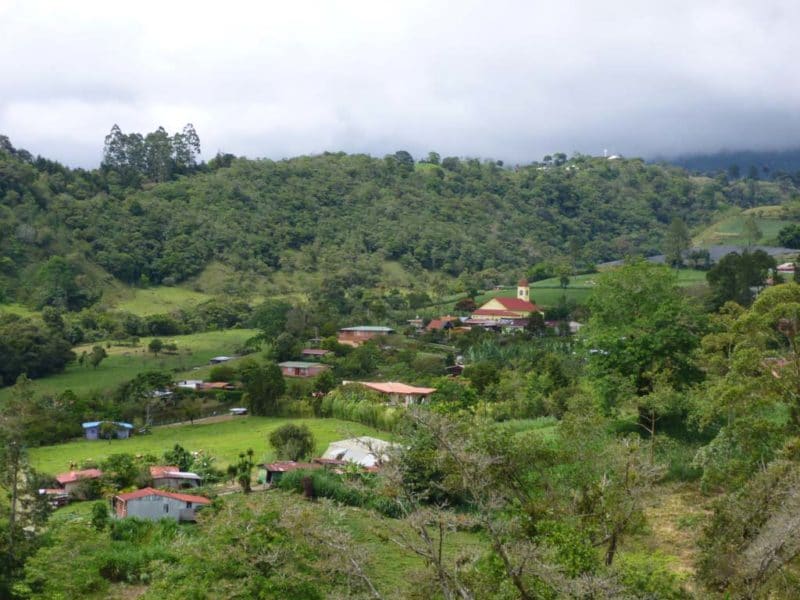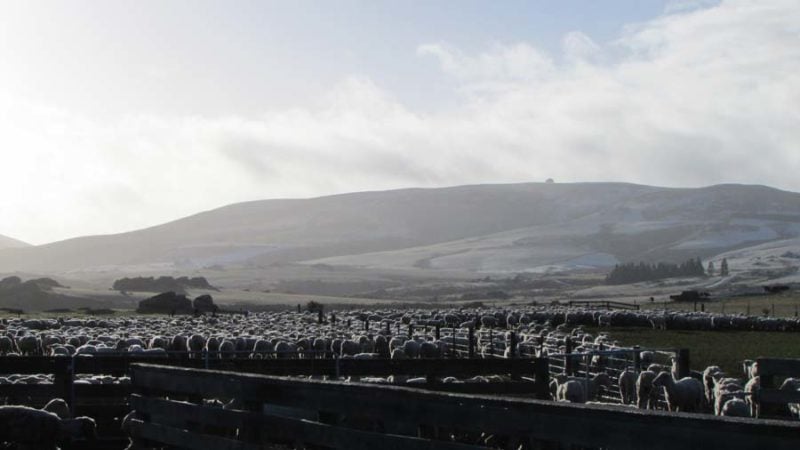How House-Sitting Helped One Traveler Leave Home & Never Look Back
Vagabond and co-author of Two Brauds Abroad Stephanie De La Garza left a 20+ year career in Information Technology and sold everything she owned to live abroad in Costa Rica working with wild animals, although this was just one of her many travel experiences. Between volunteering at a rescue center on a Caribbean beach, heading to Panama to help raise butterflies and working on a sheep farm in New Zealand, Stephanie discovered something that would change her life forever: house-sitting.
I caught up with Stephanie to learn more about the benefits of house-sitting, her most rewarding travel experiences and finding romance on the road.
1. What inspired you to want to travel, and how did you work up the courage to leave your Texas home long-term?
I’d been traveling outside of the country for about 20 years and knew there were places to live that were cheaper and had a better quality of life. I wanted to explore some spots around the world to find my ideal place while also checking off my bucket list.
I had wanted to live in Central America since 1998 so it had been a long term goal of mine. All it was going to take was the money, time, preparation and courage. I had it with my job and career by 2012 and really wanted to start living a happier lifestyle. I read The Big Leap: Conquer Your Hidden Fear and Take Life to the Next Level by Gay Hendricks which helped me as well as The Soul of Money: Reclaiming Our Inner Resources by Lynne Twist. But ultimately I was drawn by my heart to follow the dream of working with wild animals and living in Latin America.
Realizing that I wouldn’t have the luxuries of air conditioning, a car, a nice house and only being able to own things that could fit in two bags, I was prepared to give it all up. In early 2013 I quit my job and sold everything I had and moved to Costa Rica by myself. I was 43 at the time.
2. What is house-sitting, and how can a newbie get involved with it?
l learned about house-sitting before I left the U.S. as an alternative to paying for a place to live. I joined a website that posted house sits all over the world. I created a profile, described what it was I was doing and what I was involved in and hoped for the best. I realized that I would have a maximum of about seven years I could stay on the road without running out of money. This would help immensely if I was able to secure jobs.
You are not paid for house sitting, but you typically look after pets and take care of the house while the owners are away. I was getting frustrated after a month or two of being on there because I wasn’t getting any jobs. I went back to the U.S. for a visit and out of the blue a homeowner emailed me (typically you get in touch with the homeowner) asking if I’d be interested in a five-month sit in Turrialba, Costa Rica. We set up a Skype interview and emailed back and forth and they gave me the job! It was good timing, as I was returning to Costa Rica to live in Arenal on the lake so I stayed there a month then went to this sit.
Anyone can join a house sitting site, but you need to be responsible, honest and dependable. Create a good profile and provide references if applicable. Once you start getting feedback on the site, you’ll be trusted more and land more jobs. This is one time where older age can work in your favor as most homeowners don’t want someone in their 20’s. They want to know you’ve owned a home and know how to take care of things that could go wrong. On the flip side, some house sits aren’t always as they appear to be online. I’ve gotten stuck in one or two bad ones but made it through. You learn along the way.
In terms of resources, I’ve used mindahome.com.au in Australia (there’s a mindahome.com for U.S.), Kiwihousesitters.co.nz.
Trustedhousesitters.com is also very popular, although I haven’t personally used it.
3. What’s been your most rewarding house-sitting adventure? What happened?
The best sit was by far the Costa Rica one. They had a lot of tropical acreage, no pets to take care of and in the mountains with a view of an active volcano! I lived among the locals and was the only expat in the village. I got to practice my Spanish a lot and bond with the neighbors. I helped a family make over 600 tamales as a benefit for a family member who had a heart attack. I made good friends there and got a lot of exercise since I walked everywhere. I had to take the bus into town to buy groceries each week which was fun. I saved a lot of birds that hit the windows so it was nice to be able to hold these beautiful creatures in my hands while they came to. The clouds would roll through the yard almost everyday around 4pm and the variety of birds and wildlife was astonishing.
I really didn’t want to leave. The homeowners and I are still friends to this day.
However, I did have one in the town I’m currently living in — Blenheim, New Zealand — that was a very expensive house on a vineyard with a pool and fruit trees owned by a doctor. I recently had one in Blacks Beach near Mackay, Australia for a month that was right on the beach that was fabulous, as well.
4. What would you tell those who believe travel has to be expensive?
I would say that if you’re willing to lower your standards and not expect much as far as creature comforts go, you should be fine. Planning doesn’t always work, as I’ve found. You have to fly by the seat of your pants a little more often that you may like. It’s good to have a backup plan, though, just in case the situation you’re in doesn’t work out. You can use a home stay site to find cheap accommodation in someone’s house, like Homestay or AirBnB, or join Help Exchange (Helpx), World Wide Opportunities on Organic Farms (WWOOF) or Caretaker’s Gazette to land some work for accommodation jobs.
When you’re in a place for a while, look for discount sites for activities you might be interested in or even volunteer somewhere if you’ll be there long enough. Learn how to cook your own meals (I rarely eat out), buy local produce from street vendors and cut corners when it comes to traveling from place to place. The bus may take a little longer, but it’ll be cheaper than a plane. Look at the local trade sites — like Ebay or Craigslist equivalents — if you need things; buy your clothes from second hand shops and ask around for better deals on renting a place to live for a few months instead of looking online.
5. How do you earn the money to travel long-term? Do you earn an income while on the road?
I have had an online business since 2011 selling water filtration products. I’ve expanded to four websites as well as selling on Amazon and Ebay to get a little income while traveling. It doesn’t pay all of the bills but it does help. I sold everything I owned when I left Texas, so I have some money in savings as well. I could get a work visa here in New Zealand and when I move to Australia, I’ll have one there in case I wanted to get out in the “real world” to earn a better living.
6. What do you think is the biggest misconception about location-less living?
I think it might be that you’re lonely all of the time, especially for solo travelers; however, I’m rarely lonely. On the flip side, I’ve always been a loner so I’m sure that it affects everyone differently. If you’re used to always being around family and friends then you could get quite lonely while traveling constantly. I meet people everywhere I go so I’m rarely without any human contact in some form or another. Of course, email and phone calls back to my friends and family is always comforting.
7. Along with house-sitting, what are some other budget-friendly or experiential accommodation experiences you’ve had traveling? How did these enhance your travels?
I talked about home stays and help exchange work earlier. I never thought I’d be able to live with a stranger, nor did I want to; however, when I finally tried home stays I found that I enjoyed meeting locals and being able to hang out with them and do things together outside of the home. You can get a good feel for the town you’re in and they often introduce you to their friends as well. Networking is a great thing!
8. During your travels you also found love. Tell us about this.
I met Andy when I came to Blenheim to do a house sit in October 2014. He picked me up at the train station and brought me to the house, as the owner was away at the time. He took me out a few times since I was alone and had never been to this town before. We ended up doing something just about everyday I was there, but I had to leave New Zealand in two weeks.
We kept in touch while I was in Australia and I came back to New Zealand in January of 2015 and stayed with him for a couple of months. We ended up falling in love and talked about me staying for good by getting a long term visa that would then lead to residency. My tourist visa was up so back to Australia I went for three months and came back in July of this year to live with him again. This time, I’ll be applying for the visa and then we will move to Australia within the year! He’s been living here for 11 years, originally from Wales and I, too, am part Welsh.
We think fate played some kind of role in our meeting as we came from different sides of the world to this small town in New Zealand and fell in love.
9. What have been some of the most important lessons travel has taught you?
I’ve been taught patience; the ability to let life take me where it wants instead of planning where I’m going and that my way isn’t always the best way. I’ve learned how to do a lot of things I’d never thought I’d do before. I learned how to build a barb wire fence using the branches of trees; how to herd sheep; how to take care of sloths and monkeys and how to raise butterflies! I love how opening yourself to anything life throws at you, rounds you as a person. I never get tired of new experiences.
10. What have been the biggest challenges of traveling without a homebase, and how did you overcome them?
The biggest challenge so far is stressing out when I haven’t found another place to live fast enough. I used to be such a planner, but since I’ve been traveling I’ve become a procrastinator. Everything has always worked out but I often only give myself a week or two to find somewhere to go once a house sit or home stay is up.
One challenge used to be carrying everything I need on my back and in a suitcase. I travel with a small backpacker’s pack and a carry on size suitcase, and have been for 2 1/2 years now. Often I end up buying things over and over again because I just can’t carry everything with me. I have quite a few electronics which must be carried at all times when flying so I have to be aware of weight restrictions. I’m used to it now and have pared down only what is necessary and quite often leave clothes and shoes behind and buy them in the next town.
In the process of living abroad, I wrote a book with my friend, Camille Armantrout called Two Brauds Abroad while I lived in Costa Rica and she lived in Ghana, Africa. We talk about the day to day life we live through a series of emails and then give advice to people on how they can live abroad also. Our website is www.twobraudsabroad.com. I also blog at warmreptile.wordpress.com.






Hi, I’m Jessie on a journey!
I'm a conscious solo traveler on a mission to take you beyond the guidebook to inspire you to live your best life through travel. Come join me!
Want to live your best life through travel?
Subscribe for FREE access to my library of fun blogging worksheets and learn how to get paid to travel more!
Turn Your Travel Blog Into A Profitable Business
Subscribe to my email list to snag instant access to my library of workbooks, checklists, tutorials and other resources to help you earn more money -- and have more fun -- blogging. Oh, and it's totally FREE! :) // Privacy Policy.